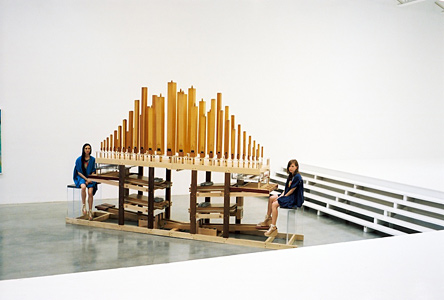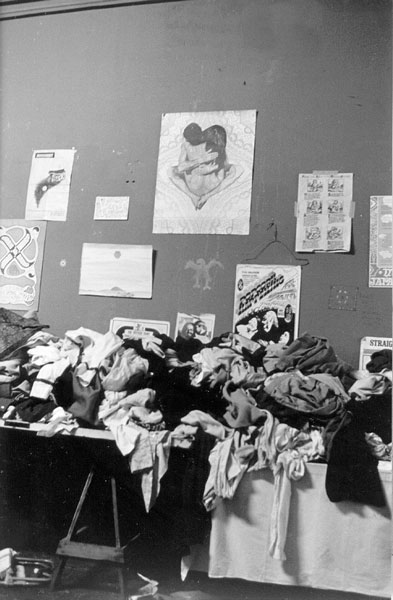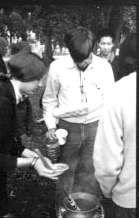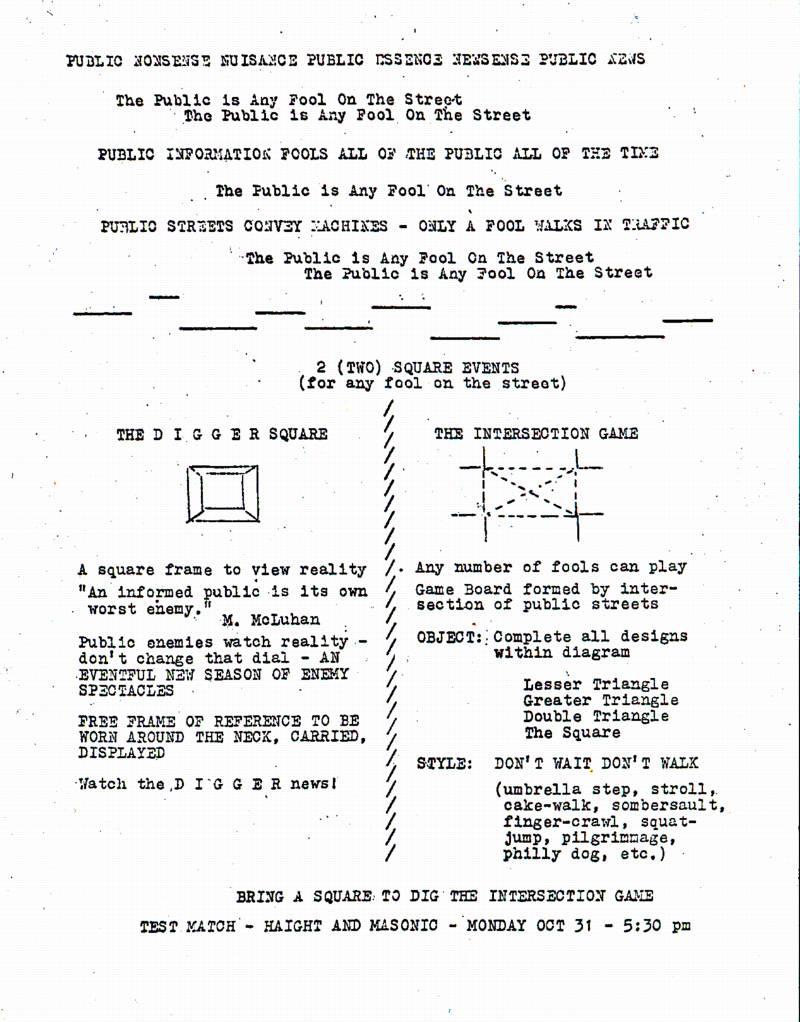Monday, March 22, 2010
When Im Dancing You Win When You're Dancing I Win
Dancing is great! With friends or by yourself, in public or at home. Apparently this guy is a legend and one of my heroes:
I have talked a little about this in the past on this blog but I wanted to re-visit one of my favorite win-win games. I love dancing! I try to go out several time a month and would love to go out several times a week if I could. It can be so many things to different people and that is one of the things about it that makes me happy. Everyone brings their love to it. Whether they love the workout or the music or the social aspect or the getting crazy staying up late party vibe or whatever.
Then there are flash mobs! Seems like at one time they were pretty low key and kind of just groups of friends bringing fun to the public sphere. The beauty of this way of dealing with group dynamics and games is that the opportunity for random people to join in and get a taste of the fun themselves whether they are actually "involved" or not. This first video is one that is a little more open the second is a little more performancy but so great anyway and its for Gabe (I know how much you love the Antwerp central station).
Part of the reason for this post is that I was recently turned onto an awesome website called Dance Jam by a friend of mine and it really inspired me to try new moves and to really get into being more adventurous and physical. Lately, if I am feeling it, I get way more sweaty and into it than I ever did in the past. I have been feeling way more connected to my body just thru dancing. This may sound like a commercial but as a win-win game it is kind of deep.
Monday, March 15, 2010
Lucky Dragons

To be fair, there isn't much I can say that this LA Times article hasn't said in terms of introduction to the Lucky Dragons. I'll trust that you will jump ship via hyperlink and come back having read the article and just go on.

I've wanted to mention the Lucky Dragons for quite some time as another great example of contemporary Win-Win. What perhaps held me back is not knowing how to frame what it is that they do. Luckily some experiences from JP and my presentation of Win-Win Games the other night (which was great and which I'll post about soon) helped unlock some ideas. One consideration discussed between JP, Aja Bond and myself of just what made a Win-Win Game different was the notion of vulnerability. The idea that one has to own up to a need for interaction and display a willingness to fail in order to play these games.
This reminded me of a phrase which was a bit of a motto for the K records crowd around the turn of the century (Microphones, VVRRSSNN, Bobby Birdman, and Little Wings who's in the video above) and which applies to Lucky Dragons just as well - "emphasize the awkward". While in practice that often seemed to imply emphasizing a collective moment of awkwardness, it actually permeated about everything for better or worse, from conversation to performance to dissemination to subject matter. What was successful about it was that it revealed the process of performance. It spoke to the dependency that a performer had upon their audience and the degree to which they could fail spectacularly in the full gaze of strangers. At times it was manipulative, but often it brought out a collectivity and a hyper awareness of the moment in the audience.
In many ways Luke and Sara are continuing in this tradition, what George Chen once dubbed as "Montessori Folk", inducing play in the midst of a very serious process of making music and art. The audience's ability to interject, redirect or abandon the performance and music making does in fact go a long way towards "tak[ing] away any barrier between people," creating "a kind of equality."
It's interesting to ask in what ways an artist can create instruments, performances, structures, or frames or props that allow and encourage audience participation while still maintaining a high standard of quality. What makes it possible to include audiences directly in creation and still succeed
 in the realm of aesthetics?
in the realm of aesthetics?

Monday, March 8, 2010
Easy Social

JP and Gabriel, the fellas behind this blog, will be facilitating some Win-Win Games live in Vancouver as part of Front Magazine's March 12 magazine launch party.
Quoth Front...
Please come to our launch party & invite all of your friends! With entry you will receive as many magazines as you want. Here's the Facebook event: http://www.facebook.com/event.php?eid=304838538308EASY SOCIALFront Magazine Launch Party****************************
MARCH 12 @ 88 E CORDOVA
****************************
10PM - 2AM ** $6-10
****************************
****************************
GAMES
****************************
by Win-Win Games
winwingames.blogspot.com
****************************
****************************
AND THEN
****************************
****************************
A DANCE PARTY
****************************
East Van legends
DJ Ruggedly Handsome
DJ French Press
****************************
****************************
CHEAP DRINKS
****************************
FUN TIMES
****************************
FREE MAGAZINES
****************************
Wednesday, February 24, 2010
Auerglass

Thanks to the wonderful Root Blog for reminding me of this great sculptural instrument made by some old friends, Cameron Mesirow and Tauba Auerbach. A wonderful example of how design can functionally include Win-Win.
Tuesday, February 23, 2010
How much Win?

For a game to be Win-Win does it have to be fair?
Does everyone have to win equally or can some people win more than others?

What's gotten me thinking about this is a conversation I recently read in Tamler Sommers' new book, "A Very Bad Wizard: Morality Behind the Curtain". Specifically it involves a a conversation between Sommers and anthropologist Joseph Henrich who conducted some unprecedented cross-discipline game playing with the Machiguenga people of the Peruvian Amazon. Henrich brought what's known in behavioral economics as the "Ultimatum Game" to a small isolated village in South America in the hopes of proving a universal character to morality in human beings.
The "Ultimatum Game" is played this way:
Two players interact to decide how to divide a sum of money that is given to them. The first player proposes how to divide the sum between the two players, and the second player can either accept or reject this proposal. If the second player rejects, neither player receives anything. If the second player accepts, the money is split according to the proposal. The game is played only once so that reciprocation is not an issue.
or try this out ...
What's interesting, if not jaw-droppingly amazing, is that the vast majority of people who make the proposal offer a near 50/50 split. Even though one would presume that in our dog-eat-dog capitalist world, aka North America, everyone would try to their hardest to test the limits of what they could get away with, acting in their perceived self-interest, assuming that the other participant will do the same. A dollar is a dollar, even if the other jerk is walking away with $19. Yet time and again, most offers made in the wilds of the North American University lab were to split the kitty even.
Now fly with me to the tangled jungles of Peru and the shocking discovery that among the Machiguenga people those splits were quite different. In fact they hover closer to 15% as opposed to the 45-50% split up North. The people participating in the Amazonian version of the game felt little or no resentment towards the other participant either, generally seeing them as just lucky given the circumstances.
I wont get into the explanation for this phenomena that Henrich offers, or the philosophical implications in regards to morality, as these are dealt with much better in the book. What I want to discuss is the question of what "fairness" means in the context and what exactly is the effect of an uneven split on a Win-Win game. In other words, just how much does everyone have to win for it to be a Win-Win game?
Monday, January 25, 2010
Follow the Bouncing Ball
 As I've been exploring the concept of Win-Win games in the arts, I've also been slowly attempting to articulate a definition of what is a win-win game. In my mind I've been developing a list of "rules" to distinguish what is and what isn't a win-win game. After many conversations and considerations I've come to the conclusion that "participation" is not enough for me to identify something as win-win. Though participation is essential, and the introduction of participation can often be the catalyst for transforming an experience towards being Win-Win, I think there is a particular type of participation that is actually of the nature of Win-Win.
As I've been exploring the concept of Win-Win games in the arts, I've also been slowly attempting to articulate a definition of what is a win-win game. In my mind I've been developing a list of "rules" to distinguish what is and what isn't a win-win game. After many conversations and considerations I've come to the conclusion that "participation" is not enough for me to identify something as win-win. Though participation is essential, and the introduction of participation can often be the catalyst for transforming an experience towards being Win-Win, I think there is a particular type of participation that is actually of the nature of Win-Win.In a way, this is an affirmative response to a post JP made a while back. I would argue that a good Win-Win game doesn't have a hierarchical structure - a conductor or facilitator leading a group in a form of group play. If that role is built into the game, it has to be absolute permeable and interchangeable - the role can be spontaneously assumed by anyone according to flow and inspiration. For simplicity sake I would call this Horizontality.
This is especially crucial to fulfill another characteristic of Win-Win Games that I also think is essential - Reproducibility. A good Win-Win game can spread as a meme, being instantly transferable through experience, and ideally easily and affordably reproduced by anyone. This is where the dependency upon an expert, a leader or a person with a specific knowledge base becomes a critical dysfunction of the game. If we take the example of Bobby McFerrin (already much celebrated on this blog), while his examples of spontaneous group composition suggest a potential form of communal play that perhaps could be replicated under other circumstances, its performance only allows for One person to conduct, and raises the question of whether just anyone actually could conduct in this way.
Though I wish I could make this point with an affirmative example of Horizontality, for now I'll resort to a reductionist example of the opposite of what I believe ought to be a critical part of a Win-Win Game.
Win-Win games work when they have nothing but participants. Perhaps the best examples also allow for non-participation as an act of participation, but in my mind successful play is co-created and co-organized by the players and doesn't leave anyone out, nor does it situate any one player in the role of leadership.
Tuesday, December 22, 2009
Digger Games

Many Years ago, while somewhat fascinated with Reclaim the Streets and enamored of the more festive forms of direct action that had emerged as part of the "Anti-Globalization Movement", I thought up a great action that could disrupt traffic, reclaim public space, and perhaps teach kids how to disobey the rules in a fun way. I imagined making a flier anonymously that would announce a huge game of hopscotch, foursquare, and a few other classic schoolyard games to take place on a specific day (April 1st maybe?) at a major intersection. The night before I would go and spray paint the squares and circles necessary for these games. My hope was that the day-of there would be spontaneous, decentralized play happening in the middle of a city street. Traffic would stop, kids would take over, and perhaps there would be a new style of non-hierarchel direct action theater in the form of public play.
I never made the fliers or helped stage the event. I look back on it now as a good idea whose moment seems to have passed, for the time being. The kind of action that seems to be resonating with autonomy-minded individuals in North America has shifted out of the streets in many ways. What's brought this up for me now, many years later, is considering how Win-Win games can be direct action political practices. I feel like this is a huge can of worms (one I'm excited about digging into), so I'll start with something from the past.

Many years ago, my friend and source of endless inspiration Sharon Cheslow asked if I'd ever heard of "the Diggers". When I admitted I hadn't she exclaimed "Gabe! I can't believe you've never heard of them. They did it all... everything that we do they did it first!" It turns out she was right in more ways than she realized.


The Diggers, in a nutshell, were the near perfect synthesis of two main strains of 60's counter-culture: the Psychedelic post-beatnik Hip scene and the anarchistic upheaval of the new Left. In a way they were a dream come true; the rarely seen avant-garde artist and activist who embraced both selves fully. They appeared right at the start of the Haight/Ashbury scene of 65-67, emerging from the SF Mime Troupe. Schooled in Artaud, Brecht, Macluhan and LSD they created political street theater out of parades, gave away free food every day, opened a Free Store, put on participatory Be-ins, helped create squats, free hotels, free medical and legal clinics ... basically fought for "FREE" in all of its material, political and spiritual manifestations.


They were also a collossal bummer for just about everyone who had a stake in the Haight/Ashbury. The cops hated them because they had no respect for authority and represented a politically engaged hippy, the Left hated them because they had fun while making a political statement often exposing the tedium of the vertically structured events put on by their Berkeley counterparts; and the Hippies hated them because while everyone else was telling them their scene was groovy, the Diggers were reminding them of the Capitalist exploitation, police violence, rape and drug abuse that was part of the ever prevelant dark side of the "Hashbury". Yet most everyone loved them, or at least respected them. Even the business owners who were endlessly harangued by the Diggers for not just giving away stuff for free embraced them as their "collective conscience."
The Summer of Love in 67 essentially destroyed the Hippie movement, in part by its overwhelming success and popularity, and the old-school Diggers gave up their name and became the Free City Collective. They eventually released a publication (for free) called the Digger Papers that acted as a summation of their written work up to '68 and included a piece called "Post-Competitive, Comparative Game of a Free City". In a sense, modern living was a game that was played, and being a Digger meant playing a new game - a Win-Win game.
Our state of awareness demands that we uplift our efforts from competitive game playing in the underground to the comparative roles of free families in free cities.
We must pool our resources and interact our energies to provide the freedom for our individual activities.
In each city of the world there is a loose competitive underground composed of groups whose aims overlap, conflict, and generally enervate the desired goal of autonomy. By now we all have guns, know how to use them, know our enemy, and are ready to defend. We know that we ain't gonna take no more shit. So it's about time we carried ourselves a little heavier and got down to the business of creating free cities within the urban environments of the western world.
Free Cities are composed of Free Families (e.g., in San Francisco: Diggers, Black Panthers, Provos [substitute "Red Guards" in Ringolevio], Mission Rebels and various revolutionist gangs and communes) who establish and maintain services that provide a base of freedom for autonomous groups to carry out their programs without having to hassle for food, printing facilities, trans- portation, mechanics, money, housing, working space, clothes, ma- chinery, trucks, etc.
At this point in our revolution it is demanded that the families, communes, black organizations and gangs of every city in America coordinate and develop Free Cities where everything that is necessary can be obtained for free by those involved in the various activities of the individual clans.
Every brother and sister should have what they need to do whatever needs to be done.
Like a lot of 60's groups that started out public and social, the Diggers/Free City Collective turned inwards, insular and a bit more paranoid (though justifiably). However, much like other artist/activist groups (the Provos, Situationist International, Black Mask, Yippies, etc) the Diggers left their mark and paved the way for generations of new kinds of games (Food Not Bombs, Critical Mass, Crimethinc., Really Really Free Market, etc.) It's possible, if not probable, that most people performing these new kinds of Win-Win practices have never heard of the Diggers, or don't know just how much of what they're doing was once part of this groups standard practice. For example, I had never heard of this game until just last week...

